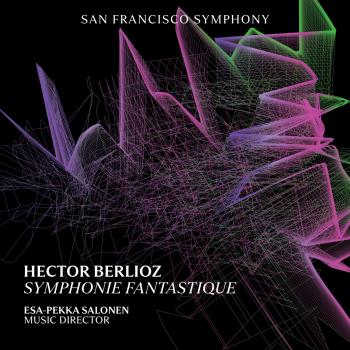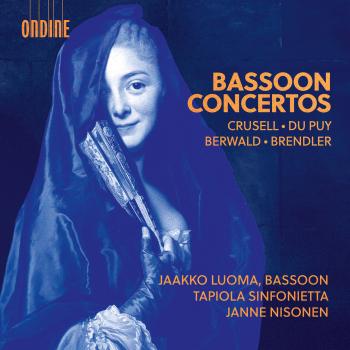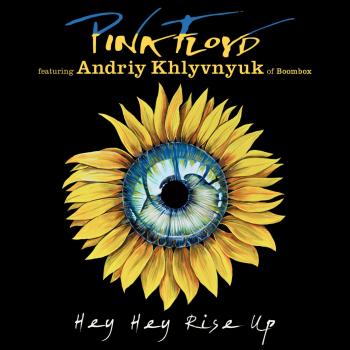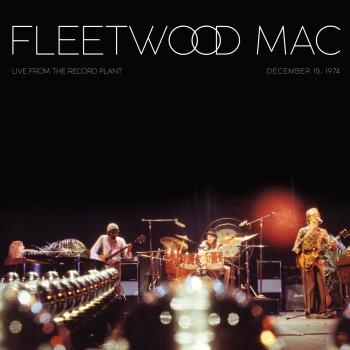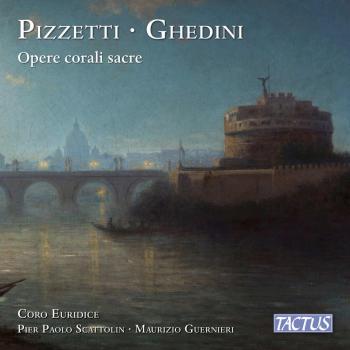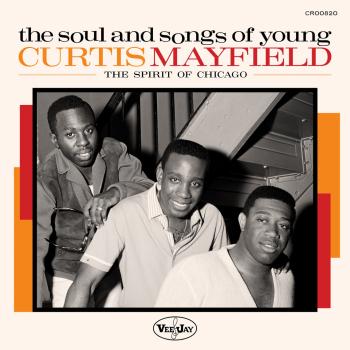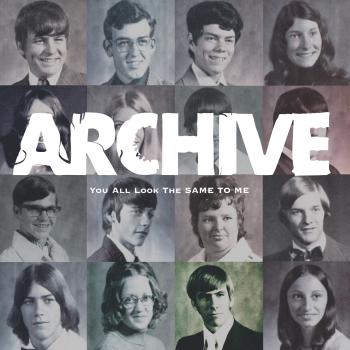
Beethoven: Piano Sonatas Nos. 1-32 (Complete) Mari Kodama
Album info
Album-Release:
2014
HRA-Release:
16.06.2015
Label: PentaTone
Genre: Classical
Subgenre: Piano
Artist: Mari Kodama
Composer: Ludwig van Beethoven (1770–1827)
Album including Album cover Booklet (PDF)
- Ludwig Van Beethoven (1770-1827): Piano Sonata No.21 in C, Op.53 (Waldstein):
- 1 I. Allegro con brio 10:49
- 2 II. Introduzione: Adagio molto 03:18
- 3 III. Rondo: Allegretto moderato - Prestissimo 09:30
- Piano Sonata No.23 in F-, Op.57 (Appassionata):
- 4 I. Allegro assai 09:07
- 5 II. Andante con moto 06:17
- 6 III. Allegro ma non troppo - Presto 05:11
- Piano Sonata No.26 in Eb, Op.81a (Les Adieux):
- 7 I. Das Lebewohl: Adagio. Allegro 06:43
- 8 II. Abwesenheit: Andante espressivo 04:01
- 9 III. Das Wiedersehn: Vivacissimamente 05:02
- Piano Sonata No.14 in C#-, Op.27, No.2 (Moonlight):
- 10 I. Adagio sostenuto 05:40
- 11 II. Allegro 02:40
- 12 III. Presto 07:11
- Piano Sonata No.4 in Eb (Grand Sonata), Op.7:
- 13 I. Allegro molto e con brio 08:03
- 14 II. Largo, con gran espressione 08:03
- 15 III. Allegro 05:15
- 16 IV. Rondo: Poco allegretto e grazioso 07:11
- Piano Sonata No.11 in Bb, Op.22:
- 17 I. Allegro con brio 07:22
- 18 II. Adagio con molto espressione 06:59
- 19 III. Minuetto 03:17
- 20 IV. Rondo: Allegretto 06:24
- Piano Sonata No.1 in F-, Op.2, No.1:
- 21 I. Allegro 03:55
- 22 II. Adagio 04:45
- 23 III. Menuetto: Allegretto 04:03
- 24 IV. Prestissimo 04:57
- Piano Sonata No.2 in A, Op.2, No.2 :
- 25 I. Allegro vivace 06:52
- 26 II. Largo appassionato 06:19
- 27 III. Scherzo: Allegretto - Trio 03:02
- 28 IV. Rondo: Grazioso 07:02
- Piano Sonata No.3 in C, Op.2, No.3:
- 29 I. Allegro con brio 10:19
- 30 II. Adagio 07:06
- 31 III. Scherzo: Allegro - Trio 03:16
- 32 IV. Allegro assai 05:30
- Piano Sonata No.8 in C-, Op.13 (Pathétique):
- 33 I. Grave - Allegro di molto e con brio 08:51
- 34 II. Adagio cantabile 05:15
- 35 III. Rondo: Allegro 04:50
- Piano Sonata No.5 in C-, Op.10, No.1:
- 36 I. Molto allegro e con brio 05:34
- 37 II. Adagio molto 07:55
- 38 III. Finale: Prestissimo 04:29
- Piano Sonata No.6 in F, Op.10, No.2 :
- 39 I. Allegro 08:49
- 40 II. Allegretto 04:43
- 41 III. Finale: Presto 04:01
- Piano Sonata No.7 in D, Op.10, No.3:
- 42 I. Presto 07:15
- 43 II. Largo e mesto 09:19
- 44 III. Menuetto - Trio - Menuetto: Allegro 02:42
- 45 IV. Rondo: Allegro 04:14
- Piano Sonata No.16 in G, Op.31, No.1:
- 46 I. Allegro vivace 06:33
- 47 II. Adagio grazioso 11:48
- 48 III. Rondo allegretto 07:10
- Piano Sonata No.17 in D-, Op.31, No.2 (Tempest):
- 49 I. Lento - Allegro 09:00
- 50 II. Adagio 08:00
- 51 III. Allegretto 06:37
- Piano Sonata No.18 in Eb, Op.31, No.3 (The Hunt):
- 52 I. Allegro 07:48
- 53 II. Scherzo: Allegretto vivace 05:06
- 54 III. Minuet: Moderato e grazioso 04:29
- 55 IV. Presto con fuoco 04:59
- Piano Sonata No.12 in Ab, Op.26 (Funeral March):
- 56 I. Andante con variazioni 07:58
- 57 II. Scherzo: Molto allegro 02:42
- 58 III. Marcia funebre sulla morte d'un eroe 06:09
- 59 IV. Allegro 03:37
- Piano Sonata No.13 in Eb, Op.27, No.1 (Quasi una fantasia):
- 60 I. Andante 05:01
- 61 II. Allegro molto e vivace 01:55
- 62 III. Adagio con espressione 02:58
- 63 IV. Allegro vivace 05:43
- Piano Sonata No.15 in D, Op.28 (Pastoral):
- 64 I. Allegro 10:11
- 65 II. Andante 06:10
- 66 III. Scherzo: Allegro vivace 02:22
- 67 IV. Rondo: Allegro ma non troppo 04:34
- Piano Sonata No.27 in E-, Op.90:
- 68 I. Mit lebhaftigkeit und durchaus mit Empfindung und Ausdruck 05:35
- 69 II. Nicht zu geschwind und sehr singbar vorgetragen 07:35
- Piano Sonata No.9 in E, Op.14, No.1:
- 70 I. Allegro 07:03
- 71 II. Allegretto 03:02
- 72 III. Rondo: Allegro comodo 03:10
- Piano Sonata No.10 in G, Op.14, No.2:
- 73 I. Allegro 07:00
- 74 II. Andante 05:53
- 75 III. Scherzo: Allegro assai 03:37
- Piano Sonata No.22 in F, Op.54:
- 76 I. In tempo d'un minuetto 05:37
- 77 II. Allegretto - Piu allegro 05:37
- Piano Sonata No.19 in G-, Op.49, No.1:
- 78 I. Andante 04:05
- 79 II. Rondo: Allegro 03:45
- Piano Sonata No.20 in G, Op.49, No.2:
- 80 I. Allegro ma non troppo 04:17
- 81 II. Tempo di menuetto 03:26
- Piano Sonata No.24 in F#, Op.78 (For Therese):
- 82 I. Adagio cantabile - Allegro ma non troppo 08:05
- 83 II. Allegro vivace 03:13
- Piano Sonata No.25 in G, Op.79 (Cuckoo):
- 84 I. Presto alla tedesca 04:59
- 85 II. Andante 03:10
- 86 III. Vivace 02:05
- Piano Sonata No.29 in Bb, Op.106 (Hammerklavier):
- 87 I. Allegro 11:11
- 88 II. Scherzo: Assai vivace - Presto - Tempo I 02:41
- 89 III. Adagio sostenuto, appassionato e con molto sentimento 15:53
- 90 IV. Largo - Allegro risoluto 11:36
- Piano Sonata No.28 in A, Op.101:
- 91 I. Etwas lebhaft und mit der innigsten Empfindung 03:41
- 92 II. Lebhaft. Marschmassig 05:45
- 93 III. Langsam und sehnsuchtsvoll 09:23
- 94 IV. Geschwind, doch nicht zu sehr, und mit Entschlossenheit 06:56
- Piano Sonata No.30 in E, Op.109:
- 95 I. Vivace ma non troppo 03:22
- 96 II. Prestissimo 02:24
- 97 III. Gesangvoll, mit innigster Empfindung: Andante molto cantabile ed espressivo 13:05
- Piano Sonata No.31 in Ab, Op.110:
- 98 I. Moderato cantabile molto espressivo 06:24
- 99 II. Allegro molto 02:00
- 100 III. Adagio ma non troppo - 03:38
- 101 III. Fuga: Allegro ma non troppo 06:28
- Piano Sonata No.32 in C-, Op.111:
- 102 I. Maestoso - Allegro con brio ed appassionato 09:44
- 103 II. Arietta: Adagio molto semplice e cantabile 15:54
Info for Beethoven: Piano Sonatas Nos. 1-32 (Complete)
Das Warten hat sich gelohnt, endlich sind sämtliche Beethoven-Sonaten für Klavier von der japanischen Pianistin Mari Kodama für das Label PENTATONE eingespielt. Mari Kodama ist die erste Frau der Welt, die diesen umfangreichen Zyklus vollständig in high-resolution audio präsentiert.
Begonnen im Jahre 2003, hat Mari Kodama die Aufnahmen 2013 abgeschlossen, und auch die letzte CD entspricht den hohen Erwartungen, die sie bei Kritik und Publikum durch die vorangegangenen Veröffentlichungen geschürt hatte. Nun sollte diese Gesamteinspielung entsprechend gefeiert werden!
Mari Kodama, Klavier
Mari Kodama - Piano
Mari Kodama has established an international reputation for profound musicality and articulate virtuosity at the keyboard. In performances throughout Europe, the United States and Japan, she plays a broad repertoire in a powerful yet elegant style.
The 06/07 season begins with performances of the Mozart Double Piano Concerto in Japan with her sister, Momo Kodama, and a recital at the Roque d'Antheron Festival in France. In the U.S. this season, Ms. Kodama plays Beethoven Piano Concerto No.2 with the Philaharmonia Baroque in San Francisco, Beethoven Piano Concerto No.4 with David Stahl and the Charleston Symphony, and the Haydn Concerto with Mark Wigglesworth and the Detroit Symphony Orchestra. This season also marks the end of her complete Beethoven sonata cycles in Tokyo and Nagoya, as well as the completion of her recording of all five Beethoven Piano concerti with Kent Nagano and the Deutsches Symphonie-Orchester Berlin.
Recent highlights include Mozart concerti with the Gulbenkian Orchestra in Portugal as well as Beethoven concerto performances with orchestras in Montreal, Venezuela, Singapore, and Berlin. She played the Schoenberg Concerto with Jonathan Nott and the Bamberg Symphony, a work she has performed also with the American Symphony Orchestra, the Vienna Symphony, and on tour in the Netherlands. In Japan, Ms. Kodama is a regular guest with both the Tokyo Metropolitan Orchestra and the Yomiuri Nippon Orchestra in Tokyo. She played a surpassingly well-received complete Beethoven sonata cycle in Los Angeles, and has appeared in recital in New York, Paris, throughout Japan, Spain and Germany, and much of the U.S. The Los Angeles Times pronounced her performance of the Prokofiev Third Piano Concerto at the San Luis Obispo Mozart Festival 'commanding and electrifying.' Ms. Kodama has recorded Prokofiev concerti Nos. 1 and 3 with the Philharmonia Orchestra on the ASV label, and Chopin No. 2 and Carl Loewe's 2nd piano concerto with the Russian National Orchestra on PentaTone Classics. She is also featured on a new recording of Beethoven piano sonatas [PTC 5186-023]. This release, the second installment in her traversal of the complete Beethoven sonatas for the Dutch label, features the 'Moonlight' sonata, Sonata No.4, Op.7, and the 'Pathétique' sonata. The recording is Ms. Kodama's third for the Pentatone label.
Ms. Kodama is a founding member of chamber music festivals in San Francisco, Sapporo and Gmunden. The most unusual of these endeavors is Musical Days at Forest Hill, a set of four concerts presented by Ms. Kodama and her husband, conductor Kent Nagano, at their home in the Forest Hill section of San Francisco (insightcc.com/musicaldays). Rave responses prompted the return of the series in July 2006, with performances by artists including Ms. Kodama, her sister Momo Kodama, baritone Dietrich Henschel and composer-pianist Ichiro Nodaïra. In previous seasons Ms. Kodama has invited friends and colleagues from the Vienna Philharmonic, the Berlin Philharmonic, Orchestre de Paris, and prominent freelancers from France, Austria and the U.S. to play chamber music at the Forest Hill Club House as a gift to the community. Repertoire ranges from Bach to Messiaen to Schoenberg to Schumann to Schubert, with newer music by such composers as Jacob Druckman and Kurt Rohde.
Born in Osaka and raised in Paris, Ms. Kodama studied piano at the Conservatoire National in Paris with Germaine Mounier and chamber music with Genevieve Joy-Dutilleux. She has also worked with Tatiana Nikolaeva and Alfred Brendel.
Ms. Kodama has played with such orchestras as the Berlin Philharmonic, London Philharmonic, Philharmonia Orchestra, Hallé Orchestra, the Montreal Symphony, the North German Radio Orchestra, Vienna Symphony, Los Angeles Philharmonic, the Berkeley Symphony, the American Symphony Orchestra, and the NHK Orchestra in Japan. She made her New York recital debut at Carnegie's Weill Recital Hall in 1995. Her U.S. festival appearances include Mostly Mozart, Bard Music Festival, the Hollywood Bowl, California's Midsummer Mozart Festival, Ravinia, and Aspen. In Europe she has appeared at festivals in Lockenhaus, Lyon, Montpelier, Salzburg, Aix-en-Provence, Aldeburgh, Verbier and Évian.
Kent Nagano - Conductor
Kent Nagano is renowned for interpretations of clarity, elegance and intelligence. He is equally at home in music of the classical, romantic and contemporary eras, introducing concert and opera audiences throughout the world to new and rediscovered music and offering fresh insights into established repertoire. In September 2006 he became Music Director of both the Bayerische Staatsoper and the Montreal Symphony Orchestra.
Born in California, Nagano maintains close connections with his home state and has been Music Director of the Berkeley Symphony Orchestra since 1978. His early professional years were spent in Boston, working in the opera house and as assistant conductor to Seiji Ozawa at the Boston Symphony Orchestra. He played a key role in the world premiere of Messiaen’s opera Saint François d’Assise at the request of the composer, who became a mentor and bequeathed his piano to the conductor. Nagano’s success in America led to European appointments: Music Director of the Opéra National de Lyon (1988-1998), Music Director of the Hallé Orchestra (1991-2000).
During Nagano’s first two seasons in Munich he conducted world premieres of Rihm’s Das Gehege (together with Strauss’s Salome) and Unsuk Chin’s Alice in Wonderlandalong with new productions of Mussorgsky’s Khovanshchina, Idomeneo, Eugene Onegin and Ariadne auf Naxos. This season he takes on new productions of Wozzeck andLohengrin. He has toured throughout Europe with the Bayerisches Staatsorchester and their recording of Bruckner’s Symphony No 4 was released earlier this year by Sony Classical.
A common thread has thus far run through Nagano’s time in Montreal: Beethoven and his musical heirs including Mendelssohn, Brahms, Schumann and Wagner. Highlights have also included Beethoven’s 9th Symphony, Schoenberg’s Gurrelieder and concert performances of Tannhäuser and Tristan und Isolde. In the summer of 2008 Nagano inaugurated the first Bel Canto Festival including performances of Bellini’s Norma in collaboration with Accademia Nazionale Santa Cecilia in Rome. He has also championed new works by Canadian composers including a commission by Alexina Louie which features Inuit throat singers and earlier this season celebrated Messiaen’s centennary with performances of St. François d’Assise. Nagano has taken the orchestra on a coast-to-coast tour of Canada and also to Japan and South Korea and in April 2009 an extensive tour of Europe. Their recordings together – Beethoven : Ideals of the French Revolution and Mahler’s Das Lied von der Erde were released this year on Sony Classical / Analekta.
A new and important phase of Kent Nagano’s career opened when he became Artistic Director and Chief Conductor of the Deutsches Symphonie-Orchester Berlin in 2000. He has become a prominent figure in a new wave of artistic thinking in Germany, opening minds to inventive, confrontational programming. In June 2006, at the end of his tenure with the orchestra, he was given the title Honorary Conductor by members of the orchestra, only the second recipient of this honour in their 60-year history.
Kent Nagano became the first Music Director of Los Angeles Opera in 2003 having already held the position of Principal Conductor for two years. His work in other opera houses has included Shostakovich’s The Nose (Deutsche Staatsoper Berlin), Rimsky Korsakov’s The Golden Cockerel (Châtelet, Paris), Saariaho’s L’amour de loin (Salzburg Festival), and Hindemith’s Cardillac (Opéra National de Paris).
As a much sought-after guest conductor he has worked with most of the world’s finest orchestras including the Vienna, Berlin and New York Philharmonic Orchestras and the Chicago Symphony Orchestra. He has recorded for Erato, Teldec, Pentatone and Deutsche Grammophon as well as Harmonia Mundi, winning Grammy awards for his recordings of Busoni’s Doktor Faust with Opéra National de Lyon, and Peter and the Wolf with the Russian National Orchestra.
Booklet for Beethoven: Piano Sonatas Nos. 1-32 (Complete)


